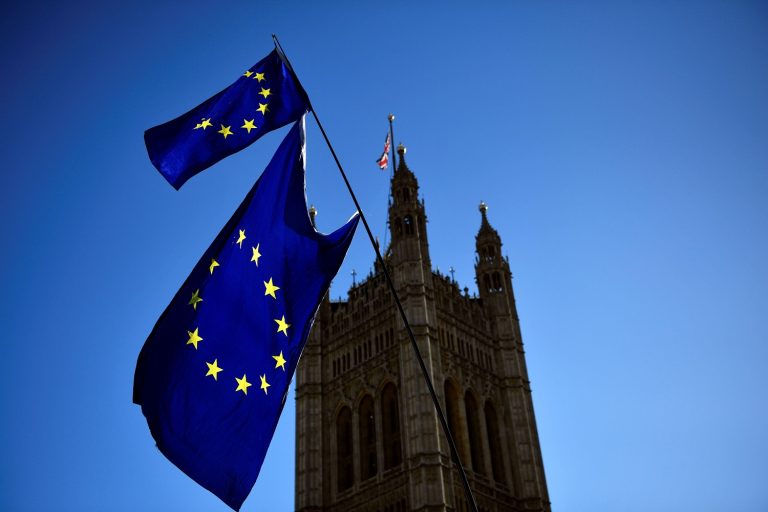22 de enero 2019

Children of Exile: The Births “Sowing Hope” in the Camp of Nicaraguan Farmers

PUBLICIDAD 1M
PUBLICIDAD 4D
PUBLICIDAD 5D
Change of mind coincides with a hardening of the discourse of the European Union towards the Government Daniel Ortega and Rosario Murillo.

Rosario Murillo and Daniel Ortega will now allow the European Parliament Members to enter Nicaragua.
Under pressure from the Europeans the Government of Daniel Ortega and Rosario Murillo did an about face and will allow this week the entry into the country of a delegation of the European Parliament.
Last Friday the Government had vetoed the entry, under the argument that members of the Parliament have issued some “threatening or disrespectful statements” against the Government, although they did not present any evidence of their allegation.
Sources linked to the European Parliament Members (MEPs) indicated to Confidential that the government officially informed them that the delegation “will be received and can fulfill its agenda”.
If they were not allowed to enter, the mission planned to reorient their visit to Costa Rica, to meet in that country with the community of Nicaraguans, exiles and refugees.
The change of position of the regime coincides with a hardening of the discourse of the European Union (EU) towards the Nicaraguan administration. On Monday, the EU foreign ministers condemned the “repression” in Nicaragua and said they were willing to take measures to favor a “peaceful and negotiated” solution to the crisis.
Similarly, after hearing the veto on the mission of Euorpean Parliament Members, the president of the European Parliament, Antonio Tajani, warned in a public ceremony that sanctions will come “soon” against the dictatorship in Nicaragua.”
“There is another dictator in Nicaragua, Mr. Ortega, who is also on the wrong track,” said Tajani last Friday after he canceled a visit of the MEPs for this week. “This is unacceptable” he added, “The sanctions against the dictatorship in Nicaragua will arrive soon, I say it loud and clear here: We will not remain silent and we will react, “said Tajani, during the National Convention of the Popular Party (right) that was held this weekend in Madrid Spain.
Meeting with different sectors
The mission, led by Spaniard Ramón Jáuregui Atondo, of the Socialist Workers Party (PSOE) intends to meet with government officials and representatives of the opposition and civil society of Nicaragua. The objective is to learn firsthand what has happened in the country since last April, when the socio-political crisis began, which has left at least 325 citizens killed by the regime, more than 3,000 injured, more than 600 political prisoners and some 60,000 exiled by political persecution and a loss of employment.
The EU ambassador to Nicaragua, Kenny Bell, has indicated to national media that the MEPs, who will arrive on Wednesday January 23rd, will prepare a report, which will be taken into account for future EU decisions on Nicaragua.
“Parliament is the co-legislator and responsible for the budget of the European Union, these are its functions; Parliament is a co-manager of the funds and co-legislator in everything, that is the power they have in their hands,” explained Bell.
“The parliamentarians come with their own freedom of opinion, of expression; and it is difficult to know in advance what is going to happen. I know that some are very well informed, prepared. I cannot predict what they are going to say, what they will find. Their first objective is to see what the situation is like, to talk to the authorities, with all the different actors and from there we will know what they are going to say, what they will conclude,” said Bell to El Nuevo Diaro newspaper.
Condemnation of foreign ministers
On Monday at their monthly meeting, the EU Foreign Ministers approved conclusions in which they lamented the “brutal repression” of the Ortega regime against peaceful demonstrations.
The ministers denounced that the recent actions against civil society organizations and independent media represent “a new blow to democracy, human rights and civil liberties that aggravates the political and social crisis.”
“The EU will continue to monitor the situation carefully and underlines its readiness to make use of all the instruments of action available to it in order to help find a peaceful and negotiated solution to the current crisis and respond to any further deterioration of human rights and of the rule of law,” said the ministers.
Archivado como:
PUBLICIDAD 3M
Confidencial es un diario digital nicaragüense, de formato multimedia, fundado por Carlos F. Chamorro en junio de 1996.
PUBLICIDAD 3D